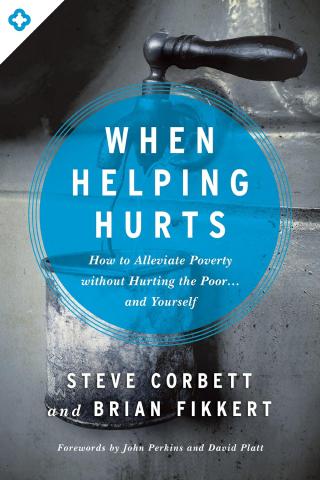The title When Helping Hurts is a bit jarring at first glance. Is it possible to hurt the poor in the process of helping them? Can one even cause harm inadvertently? These questions, among others, are addressed in this book along with many helpful ways that one can help the poor without causing lasting harm.
Chapter 1 looks to Scripture to answer the question of why Jesus came to earth. Jesus, reading from Isaiah, says:
“The Spirit of the Lord is on me, because he has anointed me to preach good news to the poor. He has sent me to proclaim freedom for the prisoners and recovery of sight for the blind, to release the oppressed, to proclaim the year of the Lord’s favor. The eyes of everyone in the synagogue were fastened on him, and he began by saying to them, Today this scripture is fulfilled in your hearing.” (Luke 4:17-21).
This prophetic word was indeed good news for the poor. Jesus showed that the Kingdom of God was not only a future reality, but one which would bring freedom, sight, release, and the Lord’s favor. If Jesus was sent to preach good news for the poor, is that the church’s calling as well? The World Bank conducted a study where they asked sixty thousand people from sixty low-income countries the question “What is poverty?” (p. 49). Some keywords people used to express their situations were: “shame, inferiority, powerlessness, humiliation, fear, hopelessness, depression, social isolation, and voicelessness” (p. 51). While one’s first reaction may be to describe poverty as a lack of financial means, the poor themselves describe poverty in a very different way. Finances alone will not free the poor from their bondage. However, Jesus has good news. He proclaims freedom!
The authors state that God created “four foundational relationships for each person: a relationship with God, with self, with others, and with the rest of creation” (p. 54). For one to be relationally whole, there needs to be harmony in all of these key relationships. When poverty is assessed by this rubric, it is fair to say that everyone is experiencing some level of poverty. A definition of poverty is: “Poverty is the result of relationships that do not work, that are not just, that are not for life, that are not harmonious or enjoyable. Poverty is the absence of shalom in all its meaning” (p. 59). The goal must be to bring people to a place of healing in all of their relationships for change to happen.
But possibly you are still asking, “How can one hurt the poor while trying to help them?” In chapter 4 the authors make a distinction between relief, rehabilitation, and development. In their words, relief is the “urgent and temporary provision of emergency aid to reduce immediate suffering from a natural or man-made crisis” (pp. 99-100). Rehabilitation follows relief with the goal of moving them along in the recovery process. Development is the ongoing process that moves people into the right relationship with God, self, others, and the rest of creation. Many times relief is given to people who need development. The result is often chronic dependence on outside resources. The author’s challenge is to carefully assess the situation before quickly handing out aid to people.
The authors are in favor of using “asset-based community development” (ABCD) to help people be reconciled in their relationships (p. 119). This approach recognizes that God has blessed every society with assets. The common approach when arriving in a materially poor area is to see all the needs in that area. In contrast, those doing ABCD assesses the current assets that people already have that can be stewarded better. The ABCD approach focuses on building upon what is already there while not trying to bring in outside resources.
While the answer to poverty may seem complex and years of development are needed for change to happen, there is an answer—Jesus. The authors contrast “Star Trek Jesus” with “Colossians 1 Jesus” (p. 248). They state that Star Trek Jesus is uninterested in this world and takes us out of the world one day. However, we see the beauty of our Savior in Colossians 1. Jesus is portrayed as “the Creator, Sustainer, and Reconciler of all things, the King whose Kingdom is wiping out all of our diseases and all of our poverty” (p. 248). Jesus cares deeply about the physical needs of the poor, and that is why the Gospel truly is good news for the poor.
May the church of God rise up to take on the mission of Jesus by helping the poor without causing harm.
Book review by RW
Book authors: Steve Corbett and Brian Fikkert

